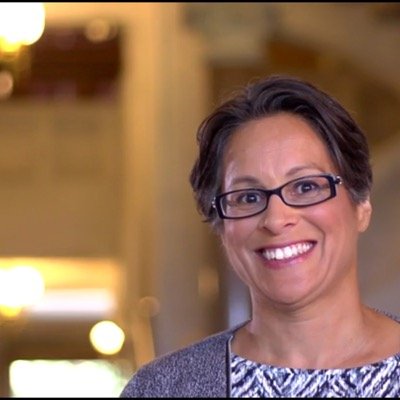
When Kathy Flaherty dropped her biochemistry thesis at Wellesley College due to anxiety and depression, her life took a new trajectory.
After graduation, she applied and was accepted to Harvard Law School. But it was not long into her tenure at Harvard, when her manic symptoms surfaced and she was hospitalized and given the proper diagnosis of bipolar disorder. When she got out of the hospital, she decided to disclose her condition by putting Council of Former Patients of Mclean Hospital on her resume. The public interest advising office suggested she reconsider this move but she resisted.
“As far as I was concerned, if somebody didn’t want me to work for them because of that I probably wouldn’t want to work for them anyway,” said Flaherty. “I decided to disclose because I honestly couldn’t imagine living any other way. I didn’t really put a whole lot of thought into it.”
Her third year of law school she read an article in the student newspaper about another student who was clearly stuggling with mental illness and bothering people in the dorms.
“This offended me so greatly that I wrote an op-ed in the law school newspaper and came out of the closet,” she said. “People praised me for doing it but for me it was just the right thing to do.”
While getting to live honestly about her condition, she faced her discrimination when she applied for admission to the Bar in the State of Connecticut. Already a member of the Bar in two other states, she wanted to be a member in her home state where she intended to live and practice. Her admittance to the Connecticut Bar was delayed for a year and a half. It was delayed because there was a series of questions on the application that asked about specific diagnosis and treatments within a five year period of taking the Bar.
“The discriminatory beliefs were just as pervasive in the legal community as they were in the general public.”
After a number of meetings with the local committee, she met with a group on the state level. They eventually decided to admit her to practice conditionally. This meant every six months on a certain day of the month her doctor would have to write a letter saying she was compliant with treatment. If the letter arrived late, it never did, she would get a call on the day of the month asking where it was.
“It was a very frustrating process but one I put up with because I wanted to be in the Bar. I didn’t think the questions were appropriate,” she said.
The result of a previous lawsuit, the questions used to be worse. Over time, the questions have gotton better. They focus more on conduct. “But the old questions were worded in such a way that if I answered yes that I had received mental health treatment, they made the automatic assumption that because I had a diagnosis that I was a potential danger to clients,” Flaherty said.
“Those [Bar examination] questions are detrimental because they discourage people from getting help they might need,” she said.
In 2010, the Bar changed the rule so that the questions had to be asked with compliance to the Americans with Disabilities Act.
Flaherty now works at the Connecticut Legal Rights Project (CLRP) where she worked her way up from intern to Executive Director over time. CLRP Inc. came about in 1990 after settling a lawsuit brought by patients in the once three big state hospitals, two of which were closed. The patients were represented by the CT ACLU and was settled in what’s called a consent decree. As part of this decree, the state gives them money to help people who face discrimination in housing.
“This is a truly great job for me,” she said. “I get to represent people in my community. When somebody talks about being locked up against their will, when I say I understand what you feel, I actually really mean it because it happened to me.”
Flaherty also is vice chair of the CT Keep the Promise Coalition. KTP was formed after the state shut down two big hospitals and promised to reinvest the savings into community based services and never kept that promise. Flaherty spends much of her time with others lobbying the Connecticut state legislature.
Her secret to wellnes: running. She’s run 5ks, 10ks, a few half marathons, and one marathon. She participates in Run 169 Towns, where one runs a race in each town, and is two thirds of the way through Connecticut.
“I am slow but determined. If I start a race, I will get to the finish line eventually,” she said.

Inspiring and illuminating are just two of the many superlatives that came to mind while I read this post.
My twelve-year-old daughter Avonlea wants to be a lawyer. I want her to read this article because Kathy Flaherty is a great role model to any aspiring lawyer – she’s a brilliant, successful, courageous, and persevering lawyer.
As a former long-distance runner, I appreciate how she utilizes running to maintain her stability.
LikeLike